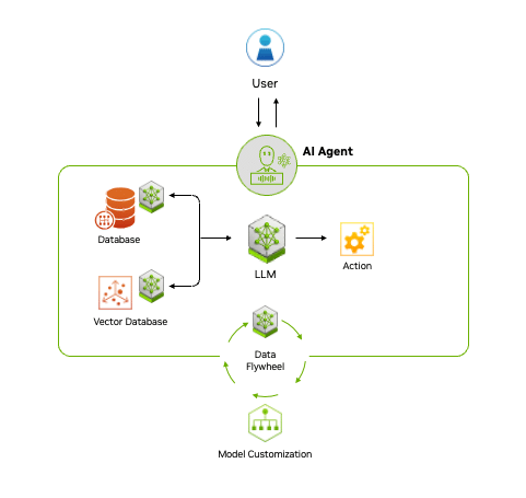Agentic AI has become a new buzzword in the tech world, with many striving to stay ahead of the curve by finding ways to integrate its problem-solving capabilities into their businesses. While generative AI excels at answering questions and performing simple tasks, agentic AI takes a more autonomous approach, capable of planning, decision-making, and executing multi-step problem-solving processes. This article takes a closer look at the intricacies of this emerging technology.
What Is Agentic AI?
Agentic AI refers to artificial intelligence systems with a degree of autonomy, enabling them to act independently to achieve defined objectives. Unlike traditional AI models, which simply follow prompts or execute predefined tasks, agentic AI can make decisions, strategize, and learn from its experiences.
Agentic AI systems understand the user’s goals or vision and the context of the problems they aim to solve. This allows them to operate with minimal human intervention, making them ideal for tasks that require continuous monitoring or rapid decision-making.
How Does It Differ from Generative AI?
While agentic AI systems leverage the creative abilities of generative AI models, they differ in several key ways. First, agentic AI is focused on decision-making rather than content creation. Second, these systems do not rely on human prompts; instead, they are designed to optimize specific goals or objectives, such as maximizing sales, improving customer satisfaction, or enhancing supply chain efficiency. Third, unlike generative AI, agentic AI can execute complex sequences of tasks, autonomously searching databases or triggering workflows to complete various activities.
Which Industries Will It Influence?
The potential applications of agentic AI span a wide range of industries. Here are a few examples:
- Manufacturing:
Agentic AI can analyze data from sensors attached to machines in factories and transportation systems to predict wear-and-tear and prevent production outages, minimizing unscheduled downtime and reducing associated costs for manufacturers. Additionally, it can manage production lines and offer suggestions for product design improvements, enabling greater customization. - Software Development:
Agentic AI systems can do more than just generate code—they can autonomously design entire system architectures and oversee quality assurance processes. By automating repetitive coding tasks, AI agents significantly boost developer productivity. Projections suggest that by 2030, AI could automate up to 30% of work hours, allowing developers to focus on more complex challenges and driving innovation. - Customer Service:
There is growing interest in “digital humans”—AI-powered agents that embody a company’s brand and provide lifelike, real-time interactions. These agents can assist sales representatives by answering customer queries or resolving issues during periods of high call volumes. Agentic AI has the potential to deliver highly personalized experiences and solutions, learning from user interactions to better serve individual needs.

Some Key Factors to Know About Agentic AI
Clear goal-setting is even more crucial for agentic AI, as these systems rely on objectives rather than predefined tasks. If the goal is poorly articulated, the agentic AI system may deviate from its intended path. Additionally, agentic AI is inherently a team effort, utilizing multiple AI agents, each with specific roles to play in achieving a larger goal. Managers overseeing these systems must carefully consider team composition, ensuring the right mix of agentic roles to execute the right tasks without conflict.
Yet, besides that, the advanced cognitive reasoning of agentic AI systems makes them less prone to the “hallucinations” (fabricated or incorrect information) that can occur in generative AI systems. Agentic AI is also far more capable of evaluating and differentiating information sources for quality and reliability, further enhancing its effectiveness.
Closing Word
As agentic AI continues to develop, its potential to impact various industries and improve problem-solving processes is becoming more evident. By focusing on decision-making, autonomy, and the ability to handle multi-step tasks, agentic AI can help businesses optimize operations, increase efficiency, and enhance customer interactions. However, successful implementation will require careful attention to goal-setting, team structure, and data quality. With these factors in mind, agentic AI has the potential to become a valuable tool in improving how businesses tackle complex challenges and achieve their objectives.
Sources:
https://blogs.nvidia.com/blog/what-is-agentic-ai
https://hbr.org/2024/12/what-is-agentic-ai-and-how-will-it-change-work

